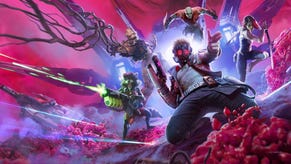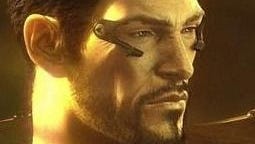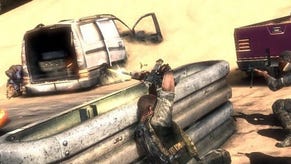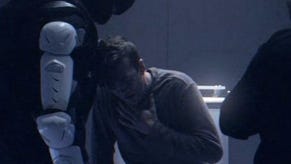Eidos Montreal's Jean-Fran?ois Dugas
Revolutionary guard.
It may not be out until early 2011, but Deus Ex: Human Revolution already has a fight on its hands in convincing fans of the series that it's worthy of the name. Developed by a different team - a new studio, in fact, at Eidos Montreal - it's still intimately associated with the story behind the original Deus Ex, and takes place 25 years beforehand.
After getting enormously excited about the game in our preview, we sat down with lead designer Jean-François Dugas - who spoke to us recently about the amazing E3 trailer - to probe those associations and discover how much choice the player is really given.
[Uproarious laughter then silence] I know.
We say we have this pressure from the outside world and everything, but even within us - internally - there's a commitment to making a great game. We really are very harsh with ourselves: 'That doesn't work.' 'That's not enough.' 'Let's push it further…' That sort of thing. So there's the pressure from the outside, but also a pressure that we're putting on our own shoulders.
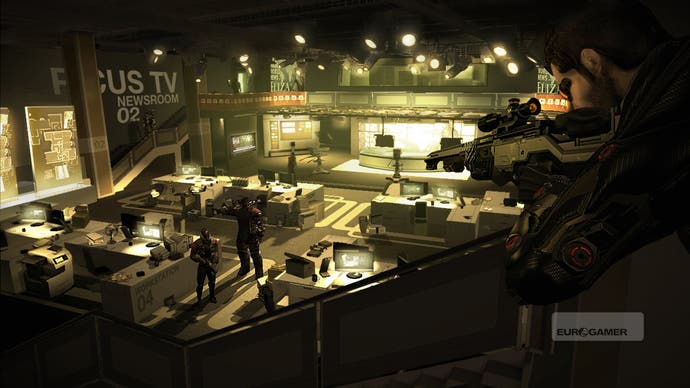
All missions have multi-path solutions. It's not once in a while - it's all of them. We also have a lot of areas that are more open, like Detroit or Heng Sha streets - in the demo your saw today we went round two corners. It's much, much bigger than that.
Big enough to lose yourself. It's not Fallout big, don't get me wrong, but there are a lot of streets, back alleys, rooftops, building interiors, sewers, conduits... There's a lot to explore.
In terms of how the game is open, and the experience of playing the game, one example I can give is in Detroit. It's early on in the game and as ever you have objectives: when you've done A you can move on to B and C.
The thing is while you're doing A you can come across something, and can hack it and shut it down. If you do that then right away one of your colleagues will call you and ask, "Jensen, what did you just do?" You say: "I don't know. There was this switch and I shut it off."
But as you progress and do the other objectives it becomes clear that what you've already switched off is actually the final objective for the map - only you did it at the start. So basically we support players that maybe go left when they're meant to go right, when it makes sense, as much as we can.
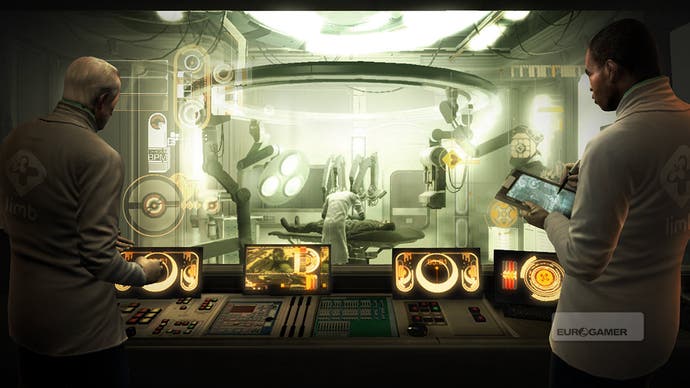
In terms of that we have one mission in Detroit when you're meant to go into a morgue in a police station. It's been locked down, but you've got to retrieve some data. You can decide to go through the main door and through the police offices, but one officer will ask you to stop and not go beyond the lobby.
You can decide to go further, but you'll go into combat. Also though, there's a desk sergeant in the lobby that you can talk to - and if you do then you'll discover that Adam Jensen knows him.
They have a past together so you try to convince him to let you into the morgue; all the time though he has a grudge against you from something that's in the background story.
There are different ways to convince him - through full dialogue, or maybe with an augmentation that allows you to convince him... more heartily. If you do that then he's going to get really mad, and threaten just what will happen the next time he sees you.
So, much later on in the game, you might bump into him again - and he will have lost his job and he won't be very happy. Alternatively, you could have just found access to the morgue through the sewers.
Exactly, that was an awesome moment. And definitely. In some places it doesn't make sense - there are places where we don't do it because of the story and the context, when technically nobody knows that you're there.
But when it's events that have been publicised within the game world you'll have things like characters say, "Erm gosh... were you forced to kill everyone in that building?" We want to keep that spirit in the new game.



